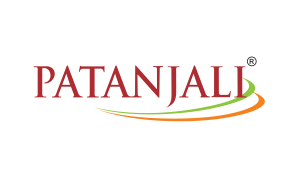The Budget brought in a new section, 194R, in the I-T Act which requires deduction of tax at source at the rate of 10 per cent by any person, providing any benefit or perquisite exceeding Rs 20,000 in a year to a resident, arising from the business or profession of such resident.
The income tax department recently issued guidelines on the applicability of new TDS provision regarding benefits received in a business or profession and said that such perquisites can either be in cash or in kind or partly in both of these forms. The new provision comes into effect from July 1.
The Budget 2022-23 brought in the provision of Tax Deducted at Source (TDS) on such income to check tax revenue leakage. The Budget brought in a new section, 194R, in the I-T Act which requires deduction of tax at source at the rate of 10 per cent by any person, providing any benefit or perquisite exceeding Rs 20,000 in a year to a resident, arising from the business or profession of such resident.
Read More: GST Council Amends GSTR3B, Extends GSTR 4 Deadline, Eases Compliance for Taxpayers
Abhishek Soni, Co-Founder & CEO, Tax2win in an exclusive conversation with Reema Sharma of Zee Media shared 5 major points that should be noted about the New TDS Rule, applicable from 1 July, 2022.
1. The Income-Tax Act has a new clause, Section 194R, that mandates the deduction of tax at source at a rate of 10% by any person offering a resident with benefits or perquisites that exceed Rs 20,000 yearly. The provision will be applied to social media influencers and doctors among others to put a check on benefits received from business or sales promotion activities.
2. The provision was announced in the budget 2022. This clause was included by the Finance Act of 2022 to broaden the tax base. Additionally, this was done to make sure that persons who profited from such sales promotion efforts disclosed their benefit on their tax returns and paid tax based on the value of the benefit or product.
Read More: Commercial Coal Mine Auctions: Govt Receives 38 Offline Bids Under 3 Tranches
3. Social media influencers will be liable for TDS if they keep the freebies/products given to them by a business for its marketing initiatives. However, if the goods is returned to the firm, the TDS will not be applicable. This provision will be applicable to any seller giving incentives, other than discount or rebate, in cash or kind, like car, TV, computers, mobile phone, gold, sponsored trip, etc. CBDT made it clear that Section 194R would not apply to doctors if they are obtaining free samples of medications while working for a hospital as an employee. In such a case, as an employer, the hospital is authorized to treat these samples as taxable and deduct tax in accordance with Section 192. In these situations, the Rs 20,000 threshold needs to be viewed in relation to the hospital.
4. Sales discounts, cash discounts, and customer rebates are not subject to tax deduction covered under section 194R of the Income Tax Act. Similarly, if the aggregate value of the benefit of perquisite provided does not exceed 20,000 in a year, the provision shall not apply. If the benefit or perquisite is given to a government organisation, such as a government hospital, that is not engaged in business or profession, Section 194R will not be applicable.
5. Section 194R covers benefits or perquisites exchanged between the businessmen or the professionals and not between the employee and employer. This means, that if an employer is providing freebies to his/her employee, the provision under the section will not apply. Here, section 192 will be applicable.





































